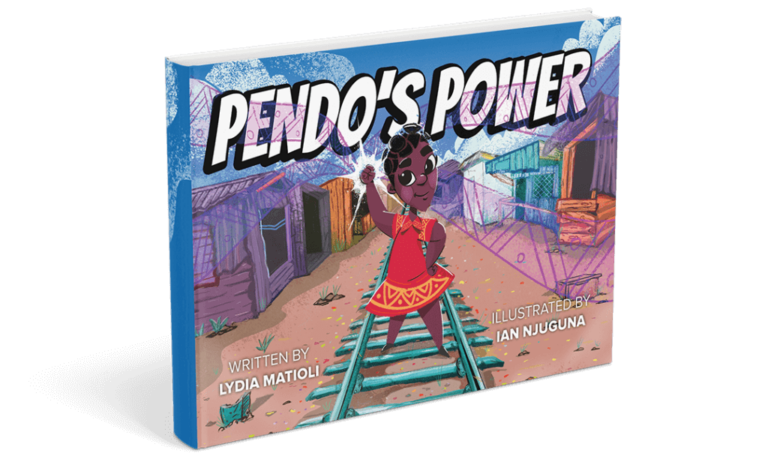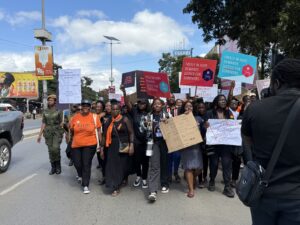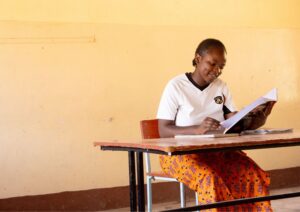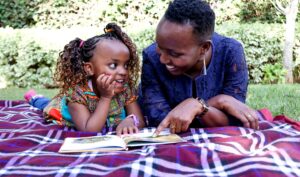When I was five years old, my family lived in a neighborhood where the houses were all close together. We had a neighbor who was both a pastor and a shop owner. He was extroverted, charismatic, and a respected figure in the community. Everyone gravitated to this man and held him in high esteem. One day, he called me into his shop and began to touch me inappropriately.
At five years old, I could not comprehend what was happening to me, but fortunately, my sister came to the shop to call me home for lunch. I could tell that my sister suspected something had happened, but she did not know how to approach the subject. She asked me in an accusatory manner what I was doing there, and I did not feel safe enough to explain what was wrong. My sister and I never spoke of the incident again until until recently. She told me that she did not know at the time how to ask me about what happened in that shop.
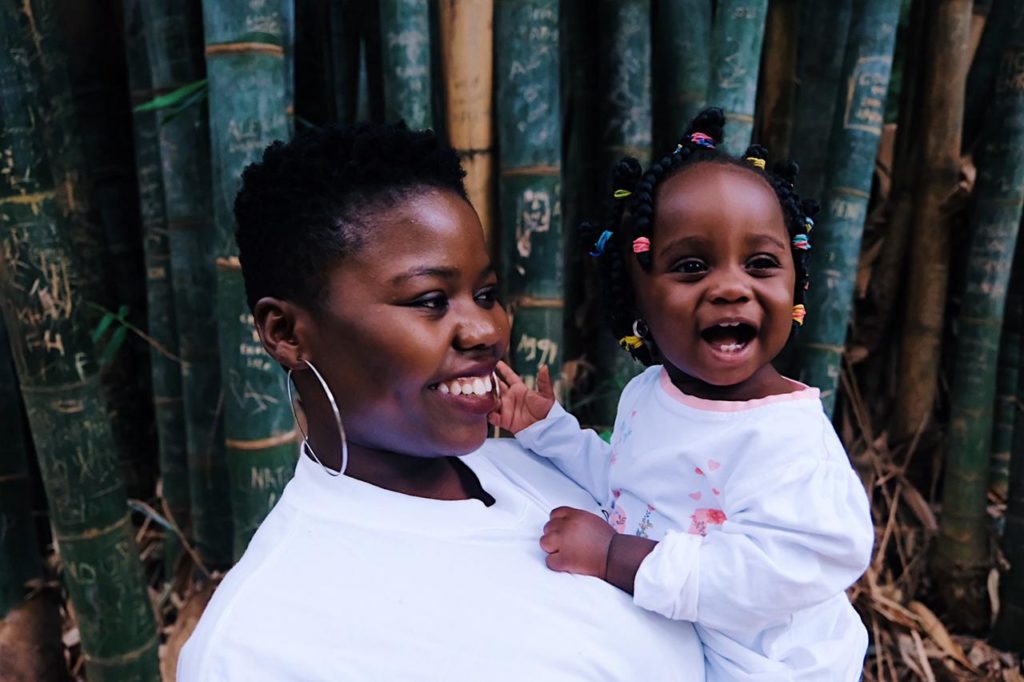
I was raised in Kibera, the largest slum in Nairobi. For years, a prevalent issue in Kibera has been child sexual abuse–the perpetrators most often being people who live with children, such as fathers, uncles, and grandfathers. The culture surrounding abuse is ingrained and deeply rooted: caregivers usually side with the perpetrator to preserve emotional or familial ties. These ties take priority over the child’s wellbeing, and parents do not think about how the abuse will affect the child for years to come. Most parents and caregivers are simply ignorant to both the immediate and lifelong damage that a violated child will suffer, but this ignorance has cost us the future of our children. To stop this cycle, we must remedy ignorance with intentional conversations. By educating ourselves and those around us, we will be able to hold perpetrators accountable and prevent children from suffering abuse. This intention and standard must begin with the parents and caregivers in the home. This is the reason why I decided to create a children’s book to educate parents and children on sexual abuse prevention. Pendo’s Power is this resource that will give readers the words and tactics to process and heal.
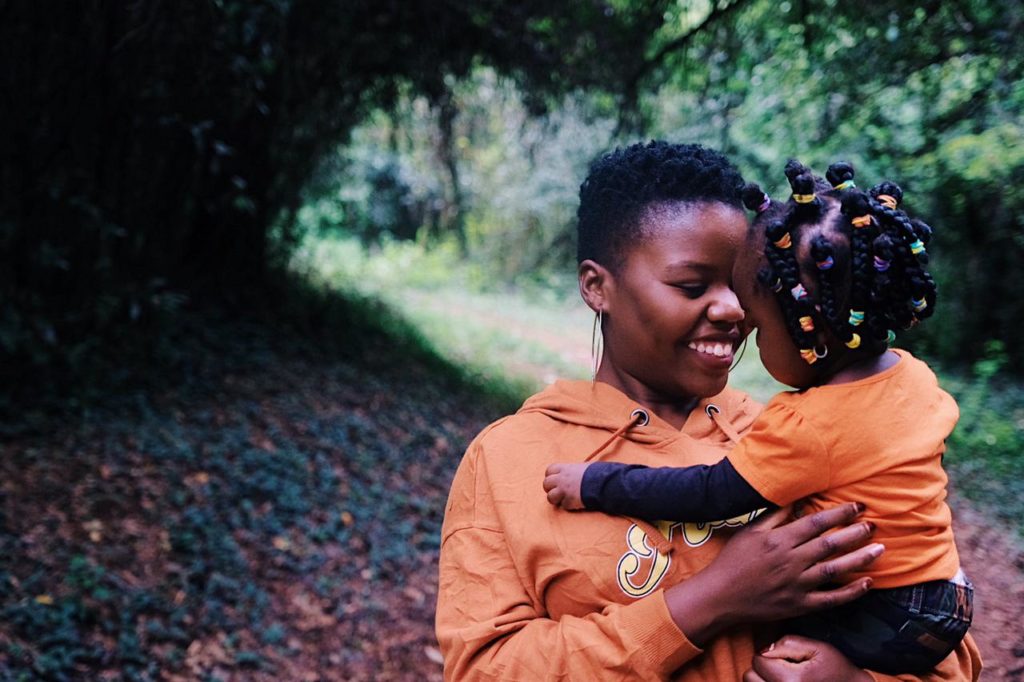
There is no instruction manual for dealing with trauma, but there are ways to ensure the child feels safe and heard.
If you suspect that a child has experienced sexual abuse, here are some healthy steps that you can take to begin healing:
1. Converse from a safe place.
My sister had asked me what I was doing in that shop in an accusatory manner as if I had done something wrong. If she had approached the subject in a gentle tone, I would have felt safe enough to open up and share. Disarm your child by asking about their day and how they feel about what happened. Show them that you care about everything they get involved in whether or not they feel safe.
2. Talk to someone about it.
My sister did not pursue the conversation because she did not feel equipped enough to ask the right questions. The perpetrator was a man in power who was an authoritative figure in the community; regardless, those in power should not be left unaccountable. Be sure to talk to someone who can help you move forward, whether it be a parent, counselor, nurse, or law enforcement officer.
3. Affirm the child.
Many children who have suffered abuse can not comprehend what abuse is and what caused it. Be sure to affirm that they are not at fault. Remind them, “I believe you”, “Thank you for telling me”, and “What he did was wrong”. Affirmations teach a child that they can trust you no matter what. It reaffirms that your priority is to protect them, not their abuser.
Pendo’s Power teaches lifesaving education and empowering resources that prevent child sexual abuse.
Learn more!
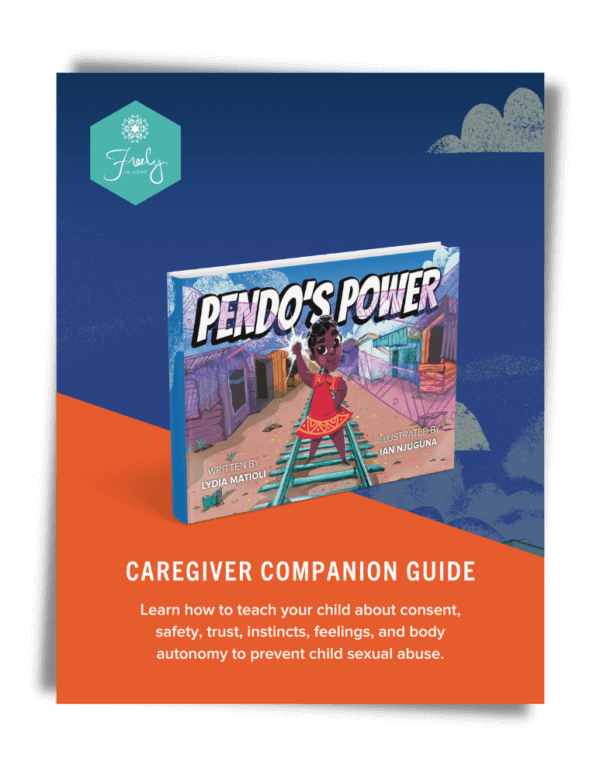
download the free caregiver's guide
The Pendo’s Power Caregivers Guide is written with the hope that through open, consistent, and transparent conversations, children will be able to understand and articulate the concepts of consent, bodily integrity, and trust. We wrote this companion guide to help parents and caregivers have open conversations with children and explore the key messages of Pendo’s story.
Thank you for downloading the Pendo's Power Caregiver Companion Guide!

As a survivor of child sexual abuse, Lydia Matioli was terrified that her daughter could be vulnerable to the same abuse she experienced. As a child-protection advocate, Lydia wanted to educate children to be aware of what abuse looks like, and to empower parents to build trust and establish safety measures with their children. This vision birthed Pendo’s Power, her first children’s book! Born and raised in Kibera, East Africa’s largest slum, Lydia has experienced the effects of sexual violence, lack of education, and poverty firsthand. Now serving as Freely in Hope’s Program Manager, Lydia coordinates, designs, and implements programs that exemplify best practices on ending the cycle of sexual violence. She is passionate about seeing survivors unlock and fully live out their potential. Through Pendo’s Power, Lydia hopes that children around the world will discover the power of their voices and utilize it to call out sexual abuse and build a safer world for generations to come.


